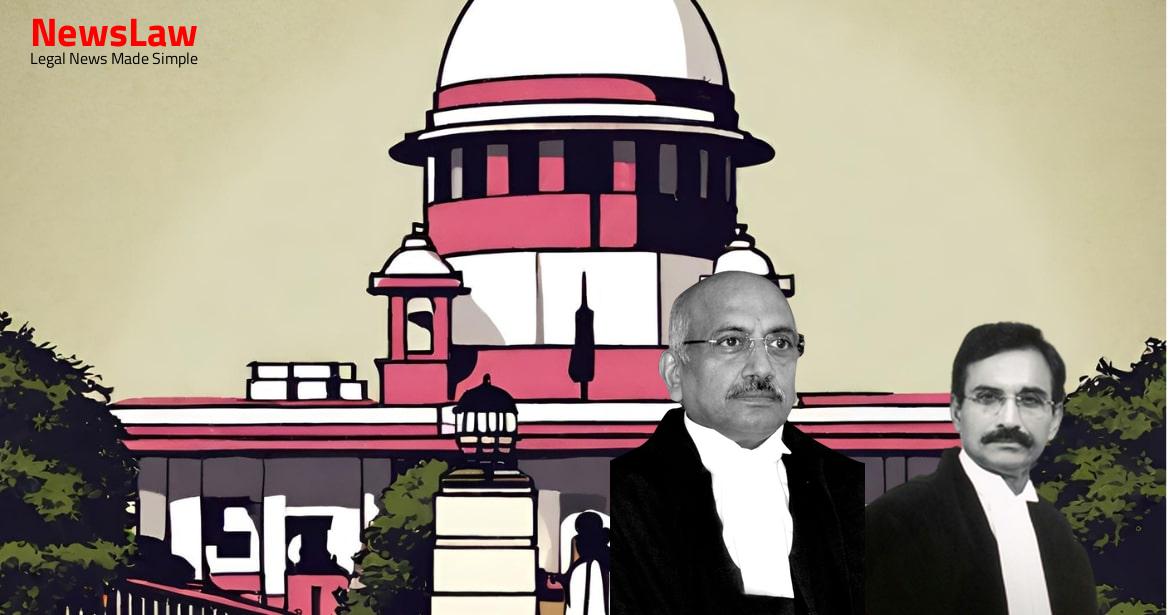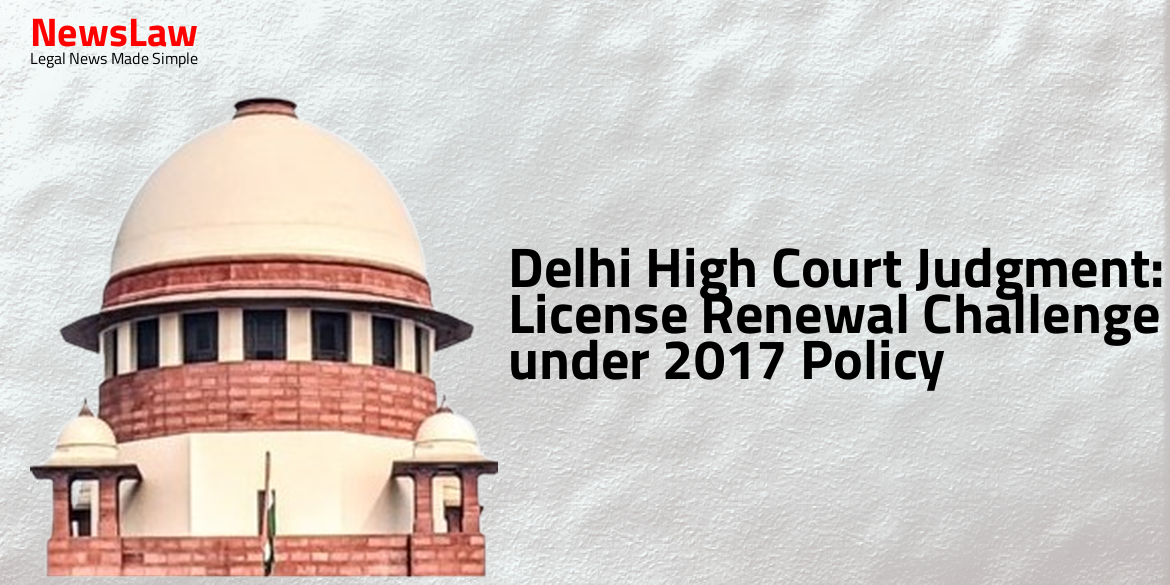In a significant legal battle over land allotment, the Supreme Court of India has issued a decisive verdict in the case involving the allocation of plots in Lohia Nagar Housing Colony, Patna. The dispute, originally brought before the High Court, has seen twists and turns as the respondent sought justice for their denied application. The case delves into issues of fairness, advertisement compliance, and price determination in state-led plot allotments. Let’s delve into the details of this intriguing legal saga.
Facts
- The appellant published an advertisement in 2008 inviting applications for plot allotment in Lohia Nagar Housing Colony, Patna.
- The respondent challenged the appellant’s action in not accepting their application due to missing documents from the State Government.
- A writ petition was filed in 2009 concerning the application rejection.
- The High Court decision in 2013 emphasized adherence to the terms of the advertisement for plot allotment.
- An agreement between the appellant and the respondent was executed in March 2015.
- The High Court ordered the appellant to make a decision on the respondent’s application within a month.
- The appellant was directed to issue an allotment letter in favor of the respondent for plot Nos. G-5 and G-6 in place of the original plot as per the advertisement.
- The High Court modified the order stating that if the allotment letter is issued after May 31, 2008, the price will be based on updated rates.
- The respondent was asked to deposit the up-to-date price, but they requested a calculation based on terms and conditions set by the High Court.
- The revised price was set at Rs. 10,58,91,736 by the appellant, which was demanded from the respondent.
- Market value was determined on June 13, 2013, for calculating the premium for the Financial Year 2013-2014.
- The High Court directed the appellant to pay back Rs. 3,31,94,435.53 in compliance with their earlier order.
- The decision taken by the appellant in their meeting on February 10, 2000, was referenced in setting reserve prices for auction of Plots/Houses/Flats.
Also Read: Property Inheritance Dispute: The Legacy of Chhotabhai Ashabhai Patel
Arguments
- Mr. Ranjit Kumar, senior counsel for the appellant, argued decision was rational based on previous Board decisions.
- The appellant claims that after accepting the allotment offer and making the initial payment, the respondent is estopped from disputing the allotment price.
- The decision of June 13, 2013, pertains to the sale of the plot by the allottee to a third person to pay 50% of the market value to the appellant.
- The office order dated March 2, 2001, addresses the fixation of the reserve price if the Board decides to auction the plot.
- Mr. Neeraj Kishan Kaul’s argument is based on the advertisement inviting plot allotment applications, which mentioned charging up to date cost/price, differentiating it from the market price that the appellant seeks to impose.
Also Read: Lt. Col. Om Dutt Sharma vs. Ministry of Defence: OROP Entitlement for Army Postal Service Personnel
Analysis
- The High Court erred in fixing the price of the plot based solely on calculations provided by the appellant.
- The appellant, as a State entity, is required to act fairly in determining the price for plot allotment.
- The appellant allotted alternative plots in lieu of the originally advertised plot in a commercial decision.
- The High Court’s fixation of price based on an outdated advertisement was deemed irrelevant.
- The appellant allotted two plots to the original applicant without proper advertisement, against public interest.
- The respondent’s construction of a hospital on the allotted plot makes cancellation of allotment impractical at this stage.
- The High Court’s directive for the appellant to charge a proportionate price to an earlier advertisement lacked legal basis.
- The appellant has the right to fix prices, especially when they were accepted by the respondent on three separate occasions.
- Allotment of plots without public notice and transparent policy has been contested previously and upheld in favor of transparent procedures.
- The respondent does not have a right of allotment of a plot simply because it applied earlier.
- A tender is considered an offer and an invitation to communicate acceptance.
- Disputing the allotment price after accepting it is not fair or reasonable.
- The appellant is entitled to the allotment price along with interest even if there is a stay by the Court.
- The practice of allotting plots without a proper invitation or advertisement by the State was deprecated.
- The order of the High Court is not sustainable in law
- The order is set aside
Also Read: Financial Capacity and Specific Performance: A Landmark Judgment by the Supreme Court Of India
Decision
- The interest for the period from the date of filing of the writ petition before the High Court till the date of the order of this Court will not be charged.
- The condition for this waiver is that the entire balance sale consideration is paid by Original Name within six months from today.
Case Title: THE BIHAR STATE HOUSING BOARD Vs. RADHA BALLABH HEALTH CARE AND RESEARCH INSTITUTE (P) LTD
Case Number: C.A. No.-007243-007243 / 2019



